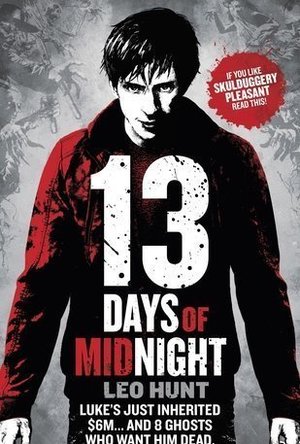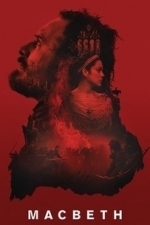Search
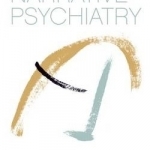
The Art of Narrative Psychiatry: Stories of Strength and Meaning
Book
Narrative psychiatry empowers patients to shape their lives through story. Rather than focusing only...
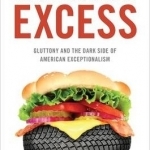
The United States of Excess: Gluttony and the Dark Side of American Exceptionalism
Book
Americans take pride in their "exceptionalism," not always aware that exceptional excess is part of...
LoganCrews (2861 KP) rated Divergent (2014) in Movies
Sep 20, 2020
𝘋𝘪𝘷𝘦𝘳𝘵𝘪𝘯𝘨. Unabashed (better) 𝘏𝘶𝘯𝘨𝘦𝘳 𝘎𝘢𝘮𝘦𝘴 ripoff which doesn't just have nothing to say - but worse - it has nothing to say yet *thinks* it has something to say. A fucking terrible metaphor about conformity depicted through surface-level teenage angst and wince-worthy 2014 YA genre tropes while deliberately (and frustratingly) refusing to provide any world-building above routine exposition, but sometimes it's fun! Woodley is pretty crappy but everyone else is solidly engaging, Teller is great as a piece of shit and James is shockingly one of the better 'faceless white beefcake' roles - but of course the winner goes to evil Kate Winslet in full Hillary Clinton mode, pantsuit and all. I fully admit to being enchanted by this movie's stupid little world and it's never unwatchable either, often quite enjoyable - but can we talk about how idiotic of a system this is? You're telling me in order to stop discrimination and foster peace (from some conveniently absent events just known as "the war" [ugh]) they thought it'd be a good idea to make distinctly unconnected factions based on - essentially - a Buzzfeed "What's Your Personality Type" quiz, which aren't allowed to communicate and all of whom evidently hate each other that they then force a bunch of moody TEENAGERS to choose which one they want to be in - the single MOST IMPORTANT AND PERMANENT LIFE DECISION they'll ever make - and AREN'T ALLOWED a single switch EVER (because... reasons, ostensibly you aren't allowed to change as a person); and if they fail or want to choose a different path they just become HOMELESS FOR LIFE. (A sadly close unintentional riff on capitalism, actually). Anyway I like when this gets trippy and when it acts as a slideshow of these supposedly helpful organizations (which don't serve their respective purposes here at all) just start doing a bunch of fucked up things to their new recruits literally from day one but all its non-politics aside I'm sick of when movies like these make the blandest character in the movie not only lead the whole thing, but also make their only discernable personality feature that they're "not like the rest of us". Yeah, no shit they aren't - they're way less interesting.
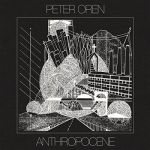
Anthropocene by Peter Oren
Album Watch
Indiana-born, everywhere-based singer-songwriter Peter Oren possesses a remarkable singing voice,...
folk rock
Debbiereadsbook (1647 KP) rated The Feisty Omega (Leongatha Pack Origins) in Books
Dec 19, 2024
I got to know Talius a bit better!
Independent reviewer for BookSirens, Iwas gifted my copy of this book.
This is an Origins book, it comes before The Sad Omega. I am reading this book after that one. I said in my review for that book, that I didn't much like Talius. NOW I understand why he was the way he was in that book! SO, I think you really should read this book BEFORE The Sad Omega. It might give you a better view of Talius when you first meet him.
Omegas and Alphas cannot mate in this world until they are 22, or 19 with a special license. Talius meets Irian first just before his 17th birthday, he was still 16. But both are drawn to each other in a way they never were to anyone before. They get to known each other over several Christmases, until Irian's mother does something unthinkable: she gets that special license and Irian will have no choice but to mate the alpha chosen by her. And that is NOT Talius.
I really did like young Talius, and how he steps slowly around the young Irian, and how they get to know each other over time. That getting to know you bit was what I missed somewhat in The Sad Omega, I think. We don't get it, as they are already mated and bonded and happy in their pack.
I did not like Irian's mother but that also explains why she is absent from his life in future books.
Both men get a say and I loved getting into their heads as they come across each other for the first time, and at the end, when it all goes down! I did not see that going down as it did, but now I feel for Marius, the alpha that Irian was supposed to mate with, and I want to know if HE gets his HEA too.
I thoroughly enjoyed getting to know Talius and Irian better, but more so Talius. I can see him differently now.
I hope to be able to read more of this pack, in the future.
4 very good stars
* same worded review will appear elsewhere
This is an Origins book, it comes before The Sad Omega. I am reading this book after that one. I said in my review for that book, that I didn't much like Talius. NOW I understand why he was the way he was in that book! SO, I think you really should read this book BEFORE The Sad Omega. It might give you a better view of Talius when you first meet him.
Omegas and Alphas cannot mate in this world until they are 22, or 19 with a special license. Talius meets Irian first just before his 17th birthday, he was still 16. But both are drawn to each other in a way they never were to anyone before. They get to known each other over several Christmases, until Irian's mother does something unthinkable: she gets that special license and Irian will have no choice but to mate the alpha chosen by her. And that is NOT Talius.
I really did like young Talius, and how he steps slowly around the young Irian, and how they get to know each other over time. That getting to know you bit was what I missed somewhat in The Sad Omega, I think. We don't get it, as they are already mated and bonded and happy in their pack.
I did not like Irian's mother but that also explains why she is absent from his life in future books.
Both men get a say and I loved getting into their heads as they come across each other for the first time, and at the end, when it all goes down! I did not see that going down as it did, but now I feel for Marius, the alpha that Irian was supposed to mate with, and I want to know if HE gets his HEA too.
I thoroughly enjoyed getting to know Talius and Irian better, but more so Talius. I can see him differently now.
I hope to be able to read more of this pack, in the future.
4 very good stars
* same worded review will appear elsewhere
graveyardgremlin (7194 KP) rated The Other Countess (The Lacey Chronicles, #1) in Books
Feb 15, 2019
THE OTHER COUNTESS is a sweet and harmless love story set in Tudor England during the reign of Queen Elizabeth I, in the year of 1582 to be exact. Lady Eleanor Rodriguez, Countess of San Jaime, is our penniless heroine who is saddled with her absent-minded alchemist father; the roles of child and parent have been long since been reversed. The preface, which takes place in 1578, gives us our first glimpse of William Lacey, the new Earl of Dorset at age fourteen, as he throws a twelve-year-old Ellie and her father off his land.
The story itself isn't exactly original and doesn't go into any unfamiliar territory, but it's ably told and fairly inoffensive, making it suitable for older teens (there are numerous allusions to sexual situations but that's as far as it goes). The dialogue and sensibilities are more modern in nature and don't always ring true to the era, but some liberties are always taken in young adult fiction, therefore making it something I can forgive. Very light on historical content, this is more for the romantics out there who like a historical backdrop to a love story. For the first half, I wasn't very involved into either the characters or their story, and it didn't help that it moved at a slow pace, though at the halfway point it picked up and started charming me. However, the hero and heroine were a little too perfect, more so in Ellie's case, as she didn't seem to really have any negative attributes other than she has a bit of a temper. Maybe if they had a few more rough edges I would have rooted for them to have their happy ending, as it is, I wasn't that invested. I do think that the secondary character, Lady Jane Perceval, has promise on that front since her narrative had a more realistic feel to it, so I may just pick up her story when it comes out ([b:The Queen's Lady|8805112|The Queen's Lady (The Lacey Chronicles, #2)|Eve Edwards|http://photo.goodreads.com/books/1327950501s/8805112.jpg|13679272]). The resolution to Will and Ellie's story came far too easily and some more conflict would have made it much better. Still, as I said, it's a sweet story, even if nothing sets it apart from other books. An easy read that should appeal to teenage girls.
The story itself isn't exactly original and doesn't go into any unfamiliar territory, but it's ably told and fairly inoffensive, making it suitable for older teens (there are numerous allusions to sexual situations but that's as far as it goes). The dialogue and sensibilities are more modern in nature and don't always ring true to the era, but some liberties are always taken in young adult fiction, therefore making it something I can forgive. Very light on historical content, this is more for the romantics out there who like a historical backdrop to a love story. For the first half, I wasn't very involved into either the characters or their story, and it didn't help that it moved at a slow pace, though at the halfway point it picked up and started charming me. However, the hero and heroine were a little too perfect, more so in Ellie's case, as she didn't seem to really have any negative attributes other than she has a bit of a temper. Maybe if they had a few more rough edges I would have rooted for them to have their happy ending, as it is, I wasn't that invested. I do think that the secondary character, Lady Jane Perceval, has promise on that front since her narrative had a more realistic feel to it, so I may just pick up her story when it comes out ([b:The Queen's Lady|8805112|The Queen's Lady (The Lacey Chronicles, #2)|Eve Edwards|http://photo.goodreads.com/books/1327950501s/8805112.jpg|13679272]). The resolution to Will and Ellie's story came far too easily and some more conflict would have made it much better. Still, as I said, it's a sweet story, even if nothing sets it apart from other books. An easy read that should appeal to teenage girls.
Hazel (1853 KP) rated 13 Days of Midnight in Books
Dec 17, 2018
<i>This eBook was provided by the publisher via NetGalley in exchange for an honest review
Thirteen Days of Midnight</i> is the slightly lighthearted, young adult novel by Leo Hunt set in contemporary Northeast England. Luke Manchett is an average sixteen-year-old boy who mostly cares about his reputation as a member of the school rugby team, and attracting the attention of his crush, Holiday Simmon. However, his life drastically changes on discovering that his absent, psychic exorcist, of a father has died.
Luke is not affected by the actual death, as he barely knew his father; it is the things he inherits as the only named beneficiary of his father’s will that twist his life upside down. It turns out that Horatio Manchett was not a television phony but actually a powerful necromancer. The biggest shock of all is that Luke is now the owner of a collection of eight sinister ghosts who want him dead. With Halloween fast approaching, when the souls’ powers will be at their strongest, Luke with the help of mysterious school friend, Elza Moss, and an ancient book they cannot read, must find a way to release the ghosts without causing harm to anyone else.
<i>Thirteen Days of Midnight </i>is not scary in the way some readers may expect paranormal novels to be. Although it contains ghosts and death threats it is not written in a way meant to terrify, rather to entertain. Luke and Elza’s lack of knowledge and experience with a large number of spirits helps the reader relate to the story, as it is with great doubt that any other teenager would have known exactly what to do. Luke’s dog, Ham, also adds a bit of humour to the book.
There were a few typical aspects to the story, which made it less original. A paranormal novel based at Halloween seems a fairly obvious choice of setting, and popular boy developing a friendship (and possibly more) with an unpopular girl seems rather mainstream in regards to current young adult books.
Some paranormal/horror novels can be a bit over the top and occasionally confusing, therefore it was a surprise to discover how good Thirteen Days of Midnight is. The main characters are likable, the narrative flows well and it is overall entertaining to read. It is definitely a recommendable book.
Thirteen Days of Midnight</i> is the slightly lighthearted, young adult novel by Leo Hunt set in contemporary Northeast England. Luke Manchett is an average sixteen-year-old boy who mostly cares about his reputation as a member of the school rugby team, and attracting the attention of his crush, Holiday Simmon. However, his life drastically changes on discovering that his absent, psychic exorcist, of a father has died.
Luke is not affected by the actual death, as he barely knew his father; it is the things he inherits as the only named beneficiary of his father’s will that twist his life upside down. It turns out that Horatio Manchett was not a television phony but actually a powerful necromancer. The biggest shock of all is that Luke is now the owner of a collection of eight sinister ghosts who want him dead. With Halloween fast approaching, when the souls’ powers will be at their strongest, Luke with the help of mysterious school friend, Elza Moss, and an ancient book they cannot read, must find a way to release the ghosts without causing harm to anyone else.
<i>Thirteen Days of Midnight </i>is not scary in the way some readers may expect paranormal novels to be. Although it contains ghosts and death threats it is not written in a way meant to terrify, rather to entertain. Luke and Elza’s lack of knowledge and experience with a large number of spirits helps the reader relate to the story, as it is with great doubt that any other teenager would have known exactly what to do. Luke’s dog, Ham, also adds a bit of humour to the book.
There were a few typical aspects to the story, which made it less original. A paranormal novel based at Halloween seems a fairly obvious choice of setting, and popular boy developing a friendship (and possibly more) with an unpopular girl seems rather mainstream in regards to current young adult books.
Some paranormal/horror novels can be a bit over the top and occasionally confusing, therefore it was a surprise to discover how good Thirteen Days of Midnight is. The main characters are likable, the narrative flows well and it is overall entertaining to read. It is definitely a recommendable book.
Gareth von Kallenbach (980 KP) rated Macbeth (2015) in Movies
Aug 6, 2019
Directed by Justin Kurzel, the 2015 release of Macbeth stars Michael
Fassbender
as Macbeth and Marion Cotillard as Lady Macbeth.
There are a ton of blood and guts in this movie. Many of the action
scenes have slow-motion insets, which for me were better than the jerky
camera movement of the close-up fighting scenes, but still felt weird
inside the film.
This is the traditional Macbeth story-line, with the typical language of
the original play. The accents of most of the actors were very heavy,
making it quite difficult to follow the actual dialogue.
I was able to follow the story because I know the basic premise of
Hamlet (who doesn’t?) but if I hadn’t basically known what the story was
about, and had to rely solely on the spoken words in the film, I would
have been dreadfully lost.
Marion Cotillard plays a very good conniving, plotting Lady Macbeth, and
Michael Fassbender does a great job of portraying a manipulated, power
hungry man, being driven mad by his atrocities.
The supporting cast gave great performances as well. The three witches
were played by Lynn Kennedy, Seylan Baxter, and Seylan Mhairi Baxter.
They were sufficiently creepy and mysterious to add the right amount of
darkness to their roles, without overpowering the concept that had
Hamlet interpreted their predictions differently, the entire story may
have gone differently.
There were parts of the movie that I held my breath at, and felt myself
responding emotionally to, but it would be very hard NOT to feel some
sort of emotion at watching a family being burned at the stake at the
whim of a mad-man.
If I were a die-hard Macbeth or Shakespeare fan, I likely would have
enjoyed the film far more. On the other hand, a die-hard Shakespeare fan
probably would have been upset at some of the pieces that were trimmed
from the famous lines of the original (“something wicked this way comes”
was noticeably absent)
Overall I would give this movie 2 out of 5 stars, based on the hard time
I had understanding the dialogue. If I had been able to not have had to
concentrate so hard to understand what was being said, I would have
given it 3.5 out of 5 stars.
Fassbender
as Macbeth and Marion Cotillard as Lady Macbeth.
There are a ton of blood and guts in this movie. Many of the action
scenes have slow-motion insets, which for me were better than the jerky
camera movement of the close-up fighting scenes, but still felt weird
inside the film.
This is the traditional Macbeth story-line, with the typical language of
the original play. The accents of most of the actors were very heavy,
making it quite difficult to follow the actual dialogue.
I was able to follow the story because I know the basic premise of
Hamlet (who doesn’t?) but if I hadn’t basically known what the story was
about, and had to rely solely on the spoken words in the film, I would
have been dreadfully lost.
Marion Cotillard plays a very good conniving, plotting Lady Macbeth, and
Michael Fassbender does a great job of portraying a manipulated, power
hungry man, being driven mad by his atrocities.
The supporting cast gave great performances as well. The three witches
were played by Lynn Kennedy, Seylan Baxter, and Seylan Mhairi Baxter.
They were sufficiently creepy and mysterious to add the right amount of
darkness to their roles, without overpowering the concept that had
Hamlet interpreted their predictions differently, the entire story may
have gone differently.
There were parts of the movie that I held my breath at, and felt myself
responding emotionally to, but it would be very hard NOT to feel some
sort of emotion at watching a family being burned at the stake at the
whim of a mad-man.
If I were a die-hard Macbeth or Shakespeare fan, I likely would have
enjoyed the film far more. On the other hand, a die-hard Shakespeare fan
probably would have been upset at some of the pieces that were trimmed
from the famous lines of the original (“something wicked this way comes”
was noticeably absent)
Overall I would give this movie 2 out of 5 stars, based on the hard time
I had understanding the dialogue. If I had been able to not have had to
concentrate so hard to understand what was being said, I would have
given it 3.5 out of 5 stars.
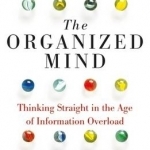
The Organized Mind: Thinking Straight in the Age of Information Overload
Book
Author and neuroscientist Daniel Levitin tackles the problems of twenty-first century information...




